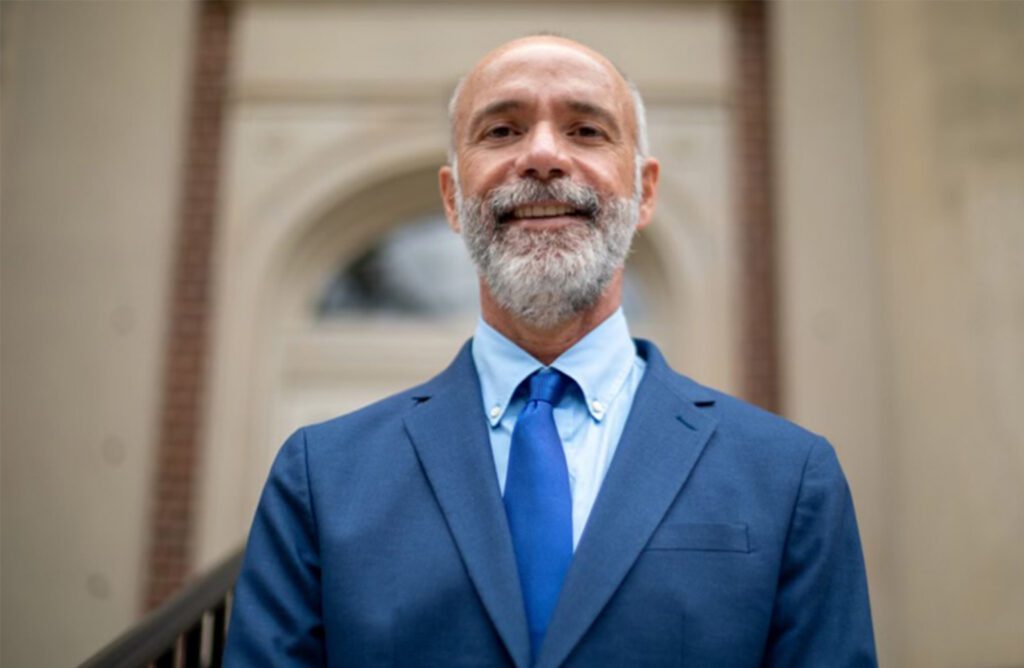 Raul Reis is the dean of the Hussman School of Journalism and Media. He is also president of the national Association of Schools of Journalism and Mass Communication. Reis has a track record for creating nationally ranked programs over 25 years in academia, most recently as dean of the School of Communication at Emerson College. Reis has also worked as a reporter and editor for Brazilian and U.S. news organizations. He began his work at Carolina on July 1, 2022.
Raul Reis is the dean of the Hussman School of Journalism and Media. He is also president of the national Association of Schools of Journalism and Mass Communication. Reis has a track record for creating nationally ranked programs over 25 years in academia, most recently as dean of the School of Communication at Emerson College. Reis has also worked as a reporter and editor for Brazilian and U.S. news organizations. He began his work at Carolina on July 1, 2022.
The Well asked Raul Reis for a Q&A session to continue their series highlighting Carolina’s newest deans.
When asked what he’s learned about Carolina since arriving, Reis reflected on his experience moving into the inside of UNC Hussman and seeing the school in action.
“The reputation that Hussman has earned among its academic peers and industry leaders is longstanding and well-known,” said Reis. “What has become clear after my first semester here is how the school has achieved such distinction. Carolina attracts exceptional students; Hussman is home to a faculty and staff with a deep commitment to helping students reach new heights; and we enjoy generous support from a network of alumni and donors who care about the school’s legacy and future.”
Reis has committed to fostering collaboration between faculty, staff, administrators and students to ensure that the school welcomes people with diverse backgrounds, experiences and beliefs. He’s opening lines of communication at every level of the school.
“As part of that work, I’ve convened a Dean’s Student Advisory Council with whom I meet regularly to keep an open and constructive dialogue with our students,” said Reis. “We’ve also welcomed 12 new faculty and staff members to the school since I have become dean — each bringing diverse expertise and interests that enrich conversations within our community and the experience of our students.”
Read the complete Carolina Story
Related Stories

 Raul Reis is the dean of the Hussman School of Journalism and Media. He is also president of the national Association of Schools of Journalism and Mass Communication. Reis has a track record for creating nationally ranked programs over 25 years in academia, most recently as dean of the School of Communication at Emerson College. Reis has also worked as a reporter and editor for Brazilian and U.S. news organizations. He began his work at Carolina on July 1, 2022.
Raul Reis is the dean of the Hussman School of Journalism and Media. He is also president of the national Association of Schools of Journalism and Mass Communication. Reis has a track record for creating nationally ranked programs over 25 years in academia, most recently as dean of the School of Communication at Emerson College. Reis has also worked as a reporter and editor for Brazilian and U.S. news organizations. He began his work at Carolina on July 1, 2022.

